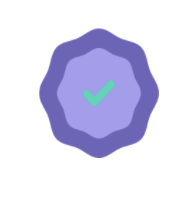Market research can take up a sizable portion of a company’s budget. So what if all the money and effort is wasted on a pool of participants that do not fit your research needs? Or, possibly worse, have already been surveyed repeatedly?
Every day, market research provides valuable insights to businesses to help them make critical decisions to improve performance. Thus, market research is the key for businesses to stay ahead of the competition.

But How Valuable Is the Quality of These Insights?
To conduct effective market research, organisations must have trustworthy panelists that can provide impactful research data. Participant quality is a pressing problem in the research industry and the traditional recruitment process has fundamental flaws. Repeat participants, professional participants, or unrepresentative participants undermine the accuracy of qualitative research. We all have heard stories of repeat participants in different research projects and how such experiences are professionally embarrassing for researchers.
There is also the issue of professional participants, who frequently participate in online market research for the sake of money. Such participants lack intrinsic motivations like curiosity and enjoyment and hence put less effort into their answers.
Trained respondents become familiar with the question-answer process, such that they tend to learn to interpret the questions and sometimes even want to speed up the survey process by lying to avoid follow-up questions. These factors make their answers fundamentally different from fresh respondents.
With current technological advancements, organisations can capture versatile and trustworthy research data. But often this research fails because agencies choose convenience over quality. Some of the commonly made mistakes by marketing agencies are listed below:
- Cheap and ineffective internet surveys
- Recruitment of respondents on a large scale and from unreliable mediums
- Improperly positioned pop-ups
Problems with Surveys and Focus Groups
Traditionally, businesses rely on a combination of quantitative data from surveys and qualitative data from focus groups and interviews. Unfortunately, surveys and focus groups have some serious inherent flaws that will ultimately skew your market research.
Inaccuracy
They rely on biased opinions of respondents and inaccurately designed survey/interview questions. Furthermore, companies sometimes expect too much from surveys and focus groups, but are reluctant to perform immersive research to get better answers.
Incentives
Professional participants answer in a generalised manner. They are highly familiar with online surveys and therefore their engagement level is low and hence, they perform poorly. These participants take surveys for the offered incentives rather than the interest which affects their response rate, performance, and effort.
A study found out that an average British panelist belonged to four different panels. Most of these respondents do not truly represent the concerned population and consequently, such research fails to replicate the psychological and behavioural aspects of actual consumers.
Social Pressure
Focus groups rely on interactions and discussions between group members as well as the relationship between the researcher and respondents. There is an enormous scope of methodological flaws in designing a focus group session. Inappropriate participant sampling, inexperienced moderators, and incorrectly written or misinterpreted reports makes the outcome of focus group sessions not so accurate and reliable. That said, these flaws of focus groups make them deliver not what real consumers think, but what people think while participating in a focus group.
As a result of this, peer pressure, group thinking, and the need to please the moderator wins over honest opinions. In a focus group, people find it difficult to bring up their real opinions on personal or sensitive topics. This ultimately results in compromising the credibility and integrity of the research topic.

Bias
A biased survey typically contains vague or ambiguous answers. The bias can be accidental or intentional, but these biased responses affect the quality of market research data.
People who participate in surveys tend to be repeat participants (in general) thereby not giving you accurate research feedback. If a person has prior knowledge of the survey, their answers are well-researched and inaccurate. Also, professional participants are more likely to lie during the recruitment process as they want to get into the process for financial benefits.
On the other hand, focus group participants usually know that they are being observed. This lack of anonymity makes it uneasy for some of the respondents to fully disclose their feelings about the company’s product. Additionally, sometimes the way a moderator presents a question, can alter or influence the participant’s response.
So, the biases can be of two types:
- Participant’s Bias: Stems from participants responding to the question based on what is socially acceptable rather than what he/she really feels. Also, if the participant is opinionated about the moderator, it can either lead them to agree or disagree with everything that is proposed to them.
- Researcher’s Bias: This type of bias occurs when a researcher unknowingly interprets data to match his/her hypothesis.
While completely avoiding bias is impossible, early identification of potential bias aids in taking appropriate preventive measures.
Best Market Research Requires Fresh Participants
High-quality market research requires the recruitment of high-quality participants, who are a true reflection of your target audience. If you won’t recruit the right participants, you just won’t achieve the results you need.
Fresh participants, who also fit your profile, are essential for receiving insightful feedback. These participants do not regularly answer surveys and their contribution helps to eradicate stale viewpoints and irrelevant opinions. Fresh participants are naturally curious, enthusiastic, and are keen on discussing the subject of their interest.
A recent study by industry experts found that fresh participants give 47% more data in research projects than those recruited through traditional methods.
Connecting with participants when they are most willing to provide answers is an excellent way to do this.
Bolt Insight: A Fresh Solution to Market Research
With behavioural insights, you can peek into the kaleidoscope of ever-changing consumer behaviour to bring a powerful perspective to your marketing research. By fine-tuning your research data with relevant inputs from superior participants, researchers can provide more clear and actionable insights to their clients.
So, if you are looking for a product that does all of the above and more, you might want to take a look at Bolt Insight: a smart, unique, and automated market research platform that instantly collects feedback from fresh respondents in less than 3 hours.














